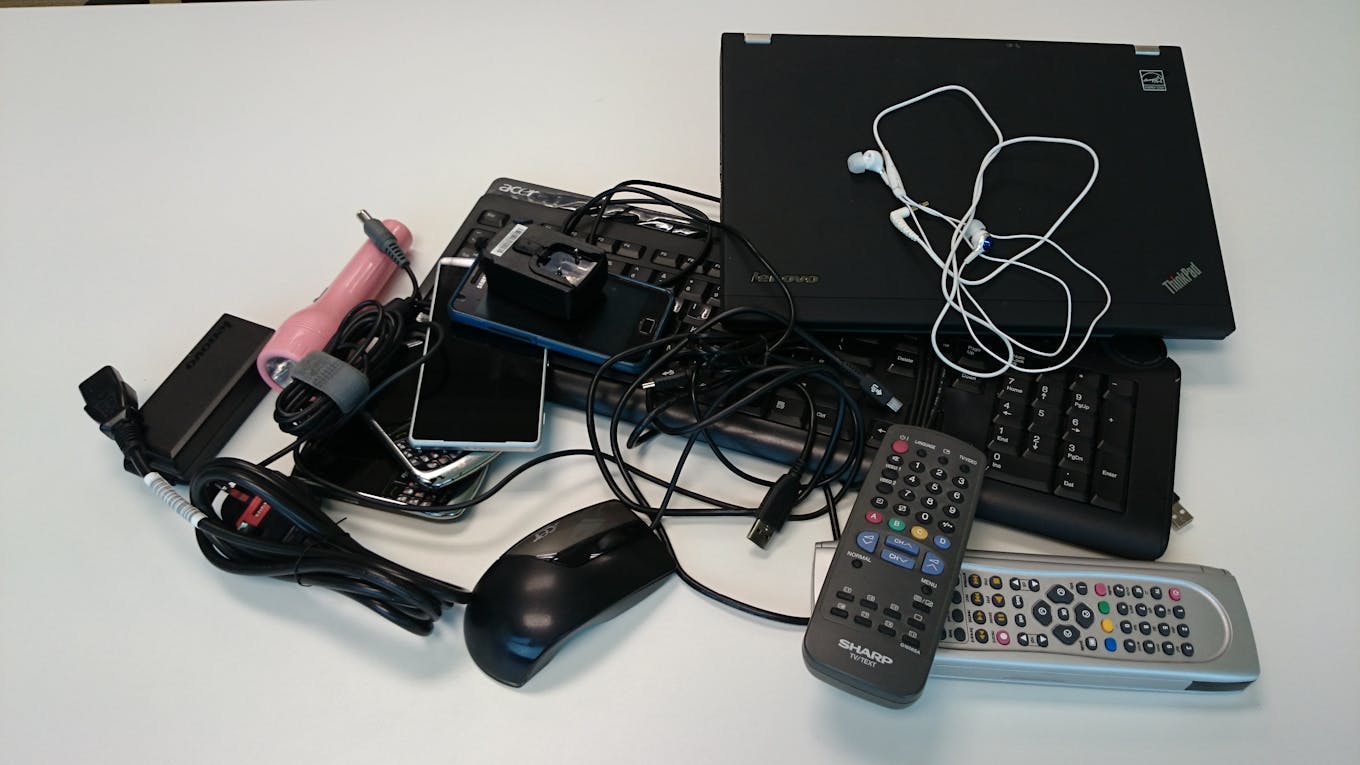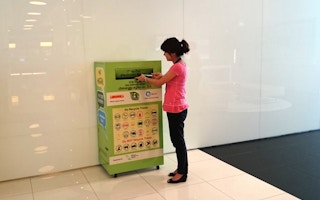Mention recycling and the first things people tend to think of are paper, plastic, metal, and maybe glass. After all, these materials are ubiquitous in our daily lives and opportunities for recycling abound daily. Recycling bins for such items have been easily available for years. However, what about bins for recycling electronic waste?
To continue reading, subscribe to Eco‑Business.
There's something for everyone. We offer a range of subscription plans.
- Access our stories and receive our Insights Weekly newsletter with the free EB Member plan.
- Unlock unlimited access to our content and archive with EB Circle.
- Publish your content with EB Premium.
E-Waste: A growing problem
Kilogramme for kilogramme, electronic waste—or e-waste—is more hazardous than paper, metal, glass or plastic waste. E-waste, which includes unwanted electronic devices, batteries, and compact discs, just to name a few, contains a variety of metals and toxic substances. Its improper disposal can lead to serious environmental pollution and health problems.

Types of e-waste that can be recycled. Image: StarHub
Increasingly rapid advances in technology, shorter life-cycles of products, changes in storage media and falling prices have resulted in a fast-growing surplus of electronic waste around the globe. The Singapore’s National Environment Agency (NEA) estimates that the city-state alone disposes of 60,000 tonnes of e-waste every year.
Yet, apart from a few electronic brands providing take-back services for their own products, there is almost no avenue for individual consumers to recycle their e-waste. In a country with a high mobile-phone penetration rate of 148.2 per cent (never mind other electronic products), that is alarming.
Ownership equals action
“
The National Environment Agency estimates that Singapore alone disposes of 60,000 tonnes of e-waste every year. Yet, apart from a few electronic brands providing take-back services for their own products, there were almost no avenues for individual consumers to recycle their e-waste.
Hence in 2012, as an info-communications services provider retailing electronic products, as well as being firmly committed to environmental sustainability, StarHub initiated a programme to encourage consumers to responsibly dispose of their e-waste.
We partnered home-grown e-waste recycler TES-AMM to launch the StarHub E-Waste Recycling Programme at WWF’s Earth Hour event in March 2012.
With a cleaner and greener Singapore in mind, we encouraged all Singaporeans to recycle their e-waste, regardless of whether they were StarHub customers or had purchased the product from StarHub.
The programme began with five bins, placed at our Customer Service Centres across the island. Within five months, more than one tonne of e-waste was collected, and the initiative won WWF’s Earth Hour Award for “Biggest Step Beyond The Hour” in 2012.
Buoyed by the initial success of the programme and with the aim of making e-waste recycling more convenient, StarHub increased the number of e-waste recycling bin sites in August 2012 to include condominiums and schools around Singapore, a Community Club and even the Environment Building. By August 2014, we had 30 bin locations island-wide.
Overcoming challenges through partnership
However, the effort of collecting and recycling these relatively small quantities of e-waste made the programme more costly than profitable.
More e-waste needed to be collected in order to make the effort self-sustaining. Convenience was identified as a contributing factor to encourage more members of the public to recycle their e-waste. Additional sites, preferably with easy public access, were required for the recycling bins. The challenge was that neither StarHub nor TES-AMM had the logistical resources to handle collection from more sites.
Enter DHL Express, the world’s leading cross-border express services provider. Like StarHub and TES-AMM, DHL also believes in being an environmentally responsible corporate citizen. The three organisations decided to join forces, with the support of the NEA, to expand the e-waste recycling programme last September, called RENEW, short for REcycling Nation’s Electronic Waste.
StarHub looks for locations interested in having a RENEW bin, and engages a supplier to produce and provide bins to these locations. DHL manages the logistics of collecting and delivering the e-waste from all the bins to TES-AMM’s e-waste recycling facility. TES-AMM then recycles the e-waste.
Today, there are RENEW bins at 104 locations across Singapore and over 20.2 tonnes of electronic waste have been collected for recycling.
Together towards a greener nation
StarHub, DHL and TES-AMM have plans to expand the programme with another 100 bins by the end of 2015. Site owners are welcome to write in to adam.reutenstan@starhub.com to request for a RENEW bin.
Members of the public in Singapore are encouraged to recycle their electronic products in the RENEW bins, as long as the item fits through the bin’s 470mm x 120mm slot. They are also reminded not to throw other types of waste into the bin as they may contaminate the e-waste inside. Fortunately, there have been fewer than five cases of this since the programme started in 2012.
For more details on what can be recycled, where to find a RENEW bin and FAQs on the RENEW programme, please visit www.starhub.com/renew.
Adam Reutens-Tan is senior manager, Corporate Sustainability & Responsibility, StarHub. This article was written exclusively for Eco-Business. This story was originally published in the Eco-Business Magazine. Download the latest issue here.











